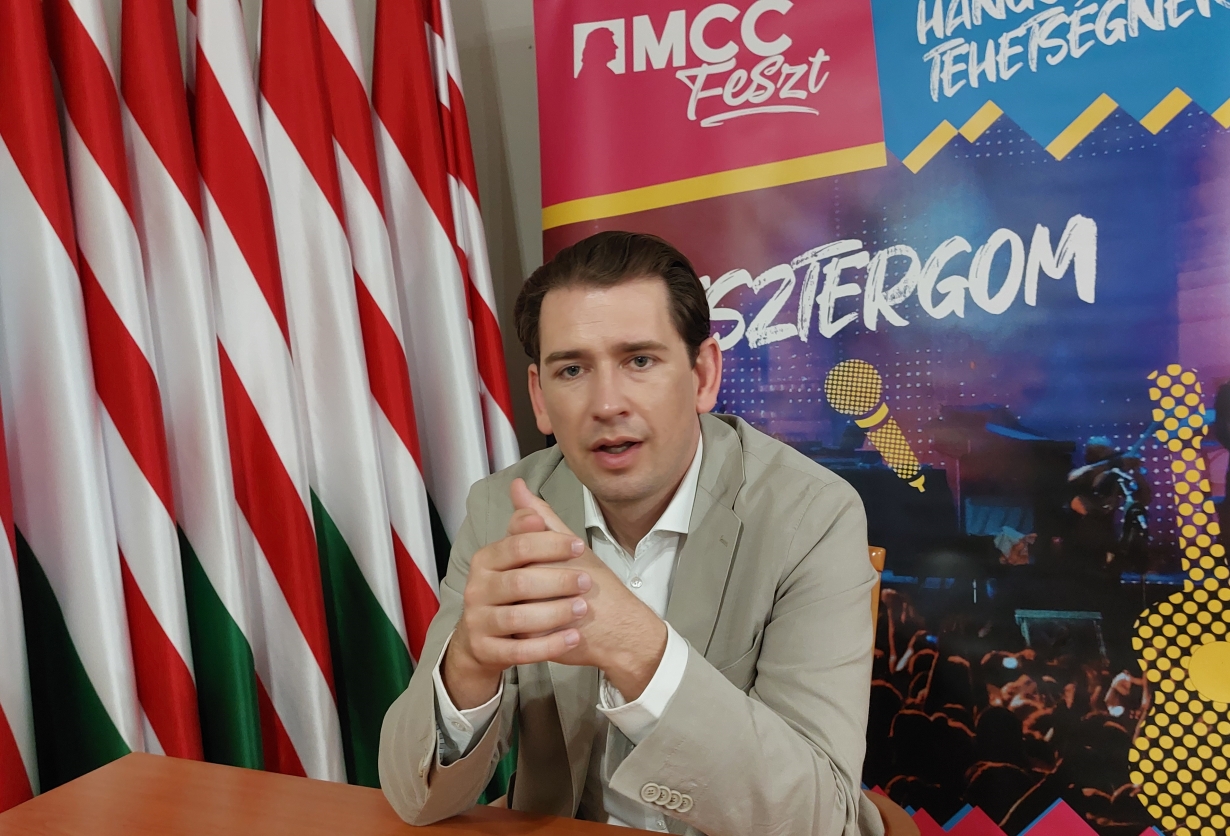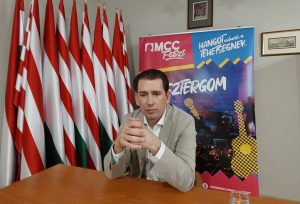The former Austrian Chancellor also praised the Hungarian battery plant industr.Continue reading

During the Mathias Corvinus Collegium’s annual MCC Feszt workshop held in Northern Hungary’s Esztergom, we had the pleasure of meeting the former Austrian Chancellor Sebastian Kurz. The former politician has shared his thoughts with us about the European shift to the right, the conflict in Ukraine, but also his love for our capital, Budapest.
There was no major shift to the right during the European Parliament (EP) elections as some have predicted. But there was a step in that direction. What are the driving questions, topics that have caused this tilt to the right in Europe?
First of all I do not think it was a big revolution, no big disruption, just a course correction. Out of 720 members of the EP the center right and far right have gained 22 new seats, which is definitely an increase, but not a major revolution. The Greens lost 25% of their votes, which was the biggest loss in these election. In my perspective the results just shows that more and more people are not satisfied with the way the EU deals with migration, with the woke movement, and does not focus enough on competitiveness. I think these are the main drivers for more votes for the center right and the right.
The principles that brought these parties together in the right-wing blocs used to be mainstream and common sense only a decade or so ago. National sovereignty, for instance used to be a principle that no one has questioned. The inviolable nature of national borders, or green policies being limited at the point where they could start endangering food supplies or basic economic functions. How come these fundamental principles of the near past have been moved to the fringes to the point now that it is only the third largest political bloc in the EP that dares dealing with them?
I do not agree entirely, if you look at migration for instance. During the migrant crisis of 2015 I have argued for stricter border controls and for fighting smugglers, for the right to decide who is, and who is not allowed to come. Back then, many politicians argued that this was far-right, fascist, extremist and problematic. But if you look at the debates today, many politicians from the center, and even the center-left argue for similar measures.
I think in some areas like migration, the political debate has shifted in the right direction. What is still missing on migration are political measures, because at the moment it is still mainly words without real outcome or change.

(L-R) Zoltán Szalai, Jan Fígel, Sebastian Kurz and Balázs Orbán at the MCC Feszt, Esztergom. Photo: Hungary Today
On the podium you have debated Viktor Orbán’s so called peace mission, as well as the topic of the Hungarian EU presidency. Why do you think that the left in the European parliament, including the European Peoples Party (EPP), has decided to put a cordon sanitaire around Hungary? Do you think that we got to a point in the European institutions that the majority can now suppress opinions concerning things that we disagree about?
We are in a situation when we do not have an easy way out from the situation in Ukraine. I hope at a certain point of time there will be negotiations and hopefully a ceasefire. I am always in favor of trying to keep diplomatic channels open, I am in favor of negotiations rather than having hundreds of people killed every day on the battlefield. But, of course, in the end there can only be a way out of the conflict if there are direct negotiations between Ukraine and Russia.
Austria and Switzerland always used to be the poster-children of neutral countries. Hungary, in its own way, has now chosen to stay neutral towards the conflict in our neighborhood. Our country and its leadership have been ostracized for this. Is it possible that the principle of neutrality has become unacceptable and you are forced to choose sides? Has the “if you are not with us, you are against us” become a leading principle in European politics?
Let us stick to the facts. Austria and Switzerland are constitutionally neutral countries, which means we are militarily neutral. We do not interfere in conflicts with military means. However, this does not mean that you cannot have an opinion. Austria, like Hungary, supported EU sanctions (against Russia), supported Ukraine and all the decisions that we have taken in the EU so far.
Also, when somebody comes out in support of Ukraine and holds the view that the conflict is a result of Russian aggression, it is still necessary to look into the future and think of a way to end the war.
These things are not either-or.

Photo: Hungary Today
Finally, I would like to ask whether you had a chance to look around in Esztergom during your visit to the town? Everyone keeps milling about in Budapest, while the rest of the country is just as amazing.
Esztergom is a beautiful city… Hungary has so much to offer. Budapest is beautiful, but the countryside is a great place to be as well. The reason why I love being in Budapest is that it is an extremely vibrant and versatile city.

Esztergom. Photo: Pixabay
Featured Image: Hungary Today